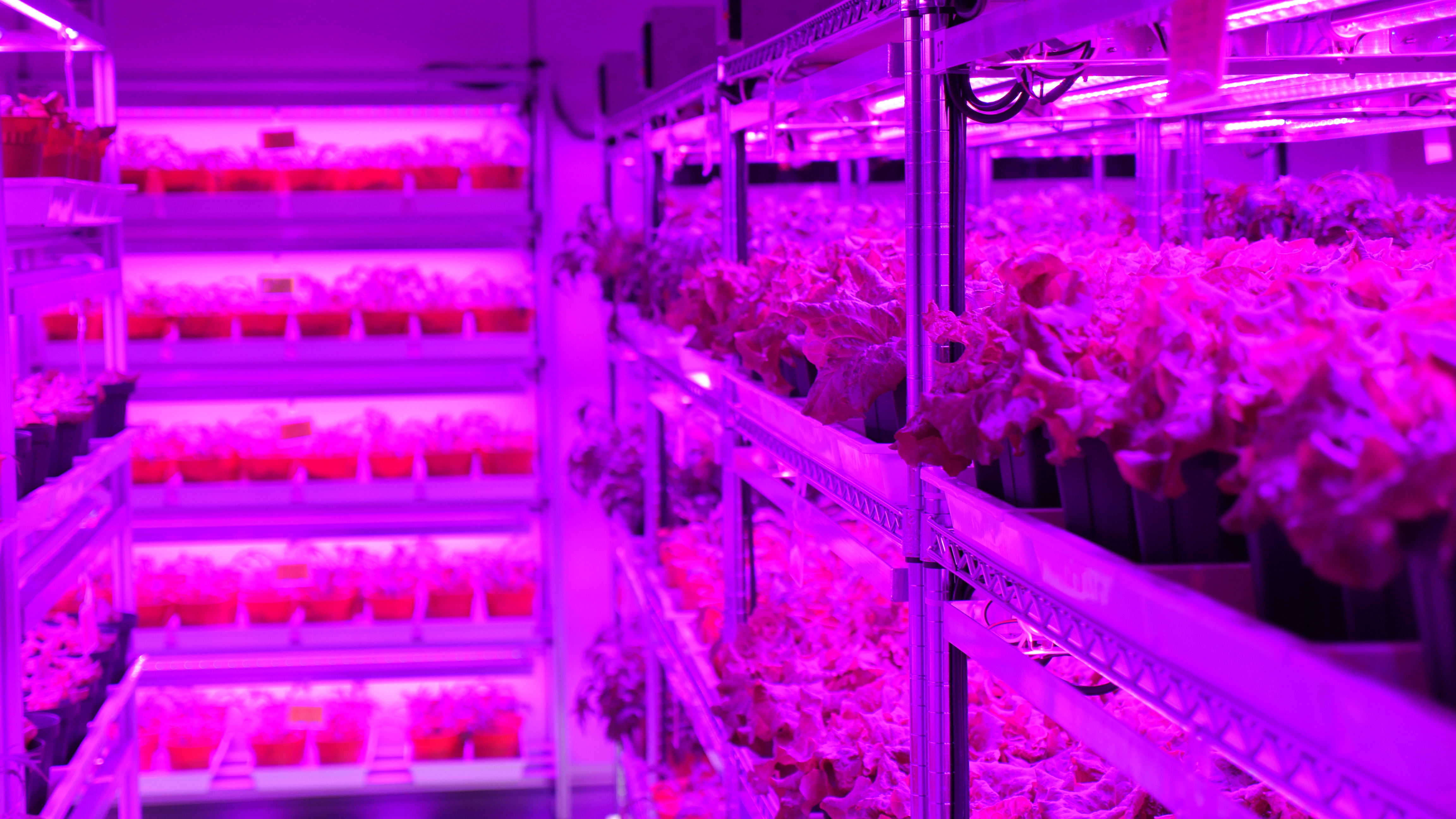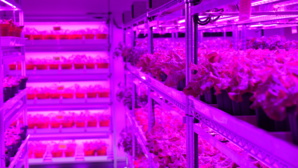Under the brand Veggie Life, Panasonic sells three kinds of salads, and a variety of European and Asian vegetables including young spinach, beets and Japanese cabbage mizuna. They were grown in artificial conditions - indoors with automatic seeding, watering and special LED-lighting.
Panasonic’s Singaporean Innovative Farm received the first state license for agricultural activities. The production corresponds to the "strict standards of food safety" of Singapore as it is grown under permanent control without chemicals.
A box of lettuce costs 6.90 Singapore dollars, or $ 4.80 in Japanese chain supermarket Meidi-Ya and Isetan. By the end of November, "high-tech vegetables" will appear on the shelves of other local shops. Panasonic also supplies products to objects of the resort and entertainment center Resorts World Sentosa, and restaurants Les Amis and Ootoya.
Within three years, Panasonic Corporation intends to invest in this area about 3 million Singapore dollars (around US $ 2.1 million) to bring the production capacity up to one ths. tons per year. According to the independent research firm Spire Research, the vegetable farm, using LED lighting to stimulate seasonal plants’ photosynthesis, can be 50% more efficient than conventional farms. In the future, the company expects to take up to 5% of the market of vegetables produced by agricultural enterprises in Singapore. The company is also considering possibility of sales outside the country.
In just one year, the sown area of Panasonic’s "vegetable factory" has increased eight-fold - from 77 to 634 square meters. Production capacity has increased from 3.6 to 81 tons. The range already includes 38 types of greens and vegetables.
Food supply security remains a major issue for the government of Singapore. Today, the state is forced to import up to 90% of food products.
A few local farms produce mainly leafy vegetables and bean sprouts, other herbs are exported from Australia, China, Malaysia and other countries. The limited land resources makes the Singapore government actively support innovative agriculture, including "indoor vegetable production" to reduce the country's dependence on foreign supplies.
The first high-tech "vegetable factory" was established with cooperation of Panasonic Corporation and Food Innovation & Resource Center (Singapore). Hideki Baba, Managing Director of Panasonic Factory Asia Pacific, expressed hope that the company will increase the "food self-sufficiency" in Singapore.
source: www.businesswire.com
Panasonic’s Singaporean Innovative Farm received the first state license for agricultural activities. The production corresponds to the "strict standards of food safety" of Singapore as it is grown under permanent control without chemicals.
A box of lettuce costs 6.90 Singapore dollars, or $ 4.80 in Japanese chain supermarket Meidi-Ya and Isetan. By the end of November, "high-tech vegetables" will appear on the shelves of other local shops. Panasonic also supplies products to objects of the resort and entertainment center Resorts World Sentosa, and restaurants Les Amis and Ootoya.
Within three years, Panasonic Corporation intends to invest in this area about 3 million Singapore dollars (around US $ 2.1 million) to bring the production capacity up to one ths. tons per year. According to the independent research firm Spire Research, the vegetable farm, using LED lighting to stimulate seasonal plants’ photosynthesis, can be 50% more efficient than conventional farms. In the future, the company expects to take up to 5% of the market of vegetables produced by agricultural enterprises in Singapore. The company is also considering possibility of sales outside the country.
In just one year, the sown area of Panasonic’s "vegetable factory" has increased eight-fold - from 77 to 634 square meters. Production capacity has increased from 3.6 to 81 tons. The range already includes 38 types of greens and vegetables.
Food supply security remains a major issue for the government of Singapore. Today, the state is forced to import up to 90% of food products.
A few local farms produce mainly leafy vegetables and bean sprouts, other herbs are exported from Australia, China, Malaysia and other countries. The limited land resources makes the Singapore government actively support innovative agriculture, including "indoor vegetable production" to reduce the country's dependence on foreign supplies.
The first high-tech "vegetable factory" was established with cooperation of Panasonic Corporation and Food Innovation & Resource Center (Singapore). Hideki Baba, Managing Director of Panasonic Factory Asia Pacific, expressed hope that the company will increase the "food self-sufficiency" in Singapore.
source: www.businesswire.com






